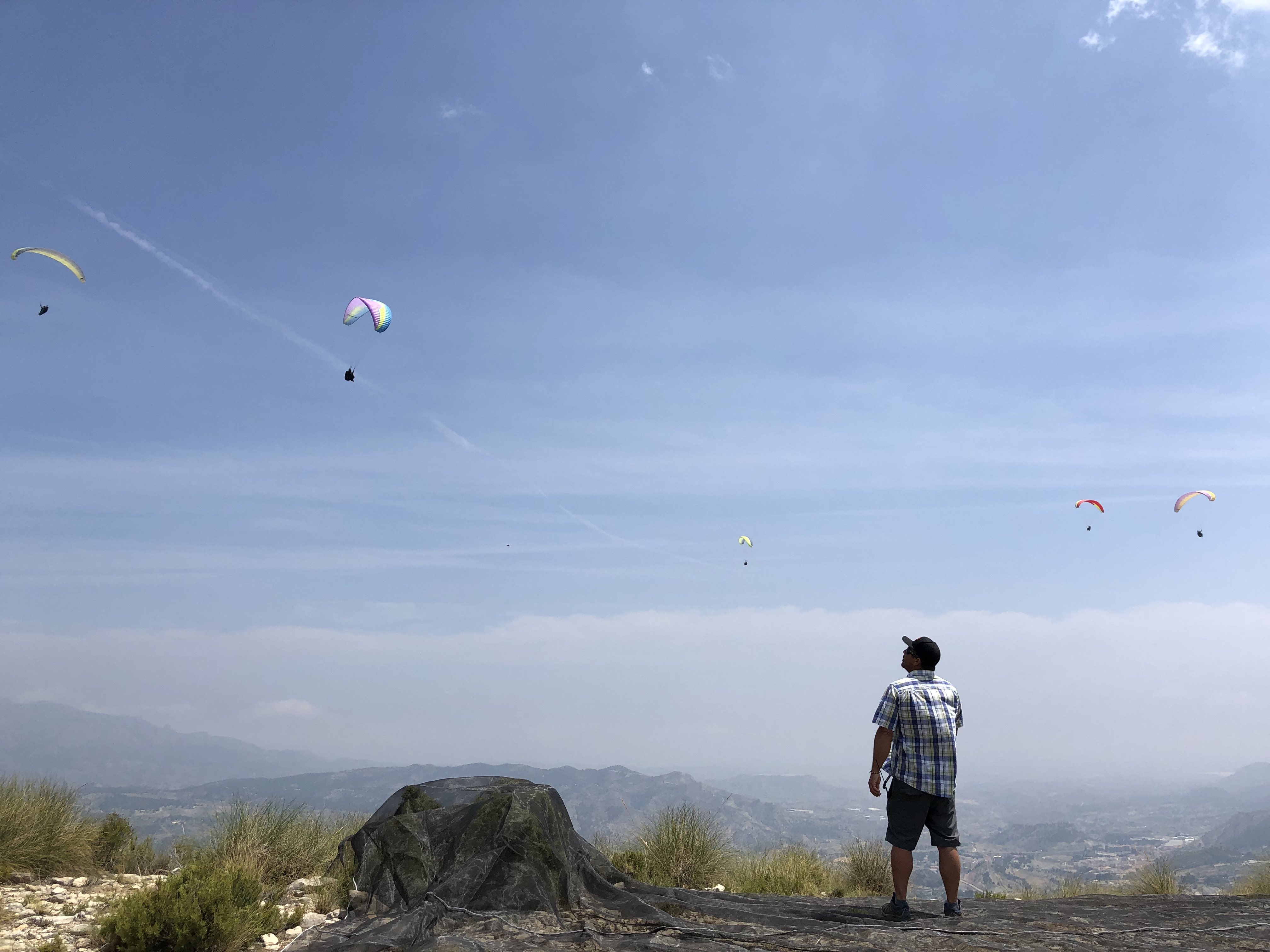By Chris Santacroce, co-chair, Accident Review Committee
Originally published in USHPA Pilot, July/August 2020
 Photo by Angela Bickar
Photo by Angela BickarWhy not set the world on fire? Seize the day! If not now, then when? You only live once!
These mantras fit our group of free-flight enthusiasts perfectly because we are an idealistic bunch and tend to be rather optimistic by nature. These days, few people would take exception to any pilot pushing their limits in the pursuit of improvement; in fact, as a community, we seem to have come to expect it.
But what about the other side of the coin? When we’re out on the hill, do any of our flying friends advocate casting aside ambition? Any folks in our inner circles waving the flag to lower our operating limitations or do flights that are below our skill level? Does anyone support you in doing shorter and less technical cross-country flights than you used to?
These are all fairly rhetorical questions, but there is value in exploring these ideas. As we planned this particular accident community outreach, we wanted to focus on the fact that while pilots receive a tremendous amount of encouragement to expand their horizons, they often don’t receive as much support for moderation and enjoying safer flights that don’t push the boundaries too far.
In the last quarter of 2019 and in early 2020, there were a number of free-flight accidents and fatalities. As your USHPA Accident Review Committee, it is our job to dig deep into the incidents and share all relevant information to help keep our community safe. We know that knowledge is power, and we want to give that power to each member.
As we collect and comb through details of
the incident data, we look for common factors. Often they jump right out at us, and other times they are harder to identify. We are always working to choose a subject matter that’s pertinent to our current flying situations. This issue, we want to look at when it’s OK to take a step back.
Tour guides, instructors, fellow pilots, competition organizers, mentors, and leaders within the community often see fit to pump up their fellow pilots and help them push their limits. By most accounts, their motivation is wholesome and genuine. Still, we have to wonder if it’s always for the best. Many pilots remark that they are getting more and more comfortable in stronger conditions. Hearing this, we have to ask ourselves if this is a positive or a negative
“progression.” When we look at the data, we see that the more that pilots put themselves in harm’s way, the more pilots end up injured.
We don’t want to take the wind out of anyone’s sails, but we need to express the idea that it’s OK to engage in simple flights only. It’s OK to reduce your operating limitations as you become less current. As you get a bit older, it’s OK to do simpler flights if you realize that your vision or your response times aren’t as good as they used to be. It’s OK to step down to a milder glider, and it is OK to fly early in the day when you know that your flight will be short. And it’s OK to fly late in the day when you know it will result in a short but highly enjoyable sunset experience.
Will your fellow pilots continue to test the middle of the day and the strongest conditions that are available? Yes—and with luck, you will find yourself sharing the very same sunset with them, celebrating the great views and the marvel of aviation. Free flight is a gift, and our best way to show gratitude is to take personal responsibility for its long-term viability. Out of respect for the gift, we are obliged to discern between what is smart and what isn’t smart on every flying day.
We challenge each member of the free-flight community to do their own soul-searching about what type of flying is really good for them and what they actually want out of each flying experience. We challenge every member to cast aside ambition and any agenda that they might have in favor of just aiming to smoothly enjoy another great day of foot-launched flying.
We support you no matter what you choose, and we want you to know that we care. In all your free-flight endeavors, you’re not alone.